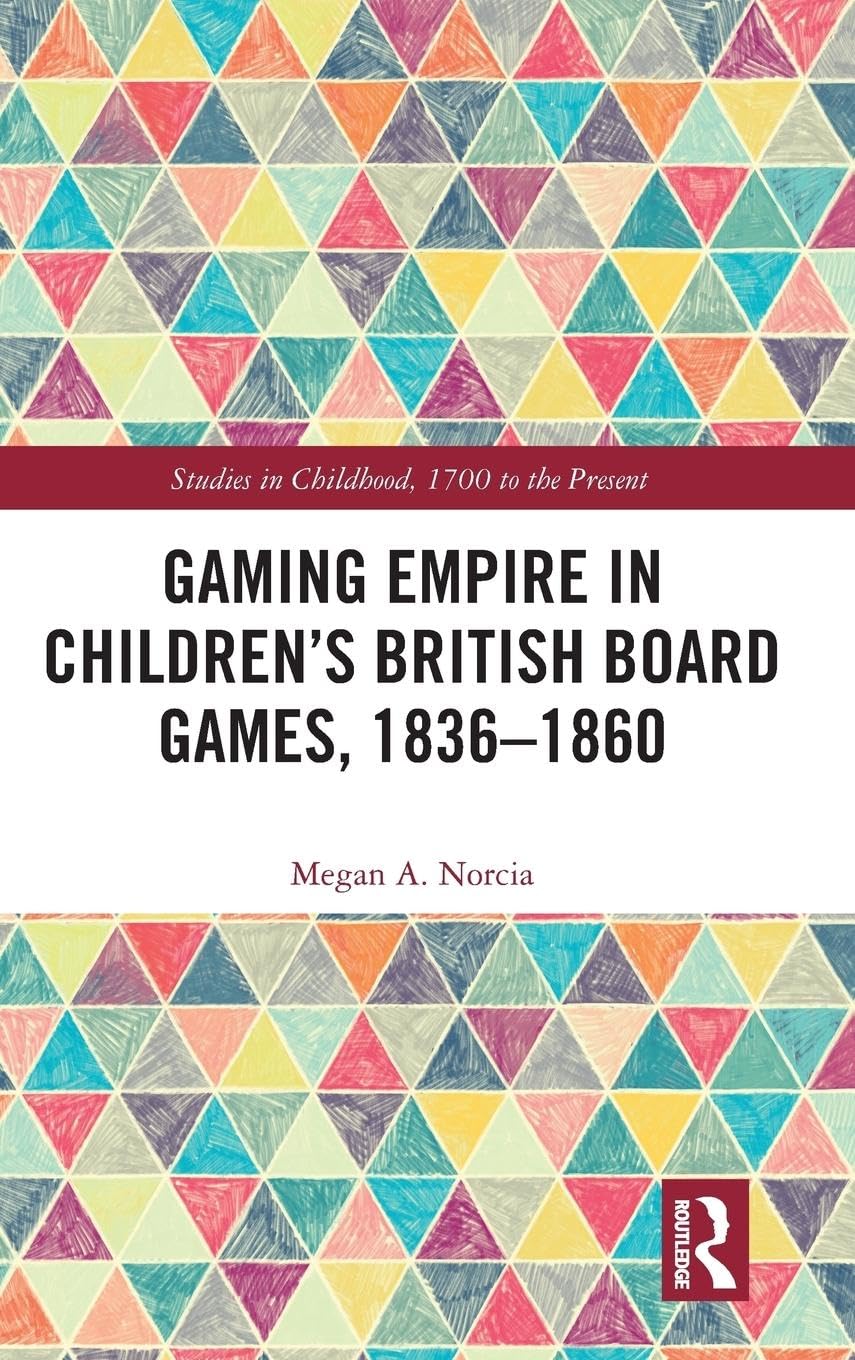Gaming Empire in Children's British Board Games, 1836-1860
Gaming Empire in Children's British Board Games, 1836-1860 is backordered and will ship as soon as it is back in stock.
Couldn't load pickup availability
Genuine Products Guarantee
Genuine Products Guarantee
We guarantee 100% genuine products, and if proven otherwise, we will compensate you with 10 times the product's cost.
Delivery and Shipping
Delivery and Shipping
Products are generally ready for dispatch within 1 day and typically reach you in 3 to 5 days.
Book Details
-
Author: Megan A. Norcia
-
Brand: Routledge
-
Edition: 1
-
Binding: Hardcover
-
Number of Pages: 261
-
Release Date: 26-03-2019
-
ISBN: 9780367209353
-
Dimensions: 8.9 x 6.2 x 0.9 inches
-
Languages: English
About The Book
"Games and the British Empire" by Megan A. Norcia explores the vibrant and profitable board game industry in Britain from the 1750s onward, well before the invention of Monopoly. During this period, board games became an integral part of the mass-market materials aimed at child consumers. The games created by publishers like John Wallis, John Betts, and William Spooner were not only forms of entertainment but also powerful tools in educating future generations of imperial rulers.
In games like A Voyage of Discovery and A Tour of the British Colonies and Foreign Possessions, children learned about imperial strategies such as cultivating, trading, conflict, displaying power, and competition. These games played a significant role in shaping ideologies around nation, race, and imperial duty, creating a more nuanced view of the British imperial experience. This book provides an archival examination of these games, highlighting their role in influencing the ideological and material culture of the time.
By positioning these games alongside children's geography primers and adventure tales, Norcia introduces a fresh way to historicize the Victorians, Britain, and the Empire itself. This work brings new perspectives to the fields of children’s literature, culture studies, and imperial studies by investigating how these board games intersected with both material and literary culture.





